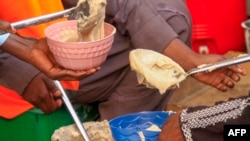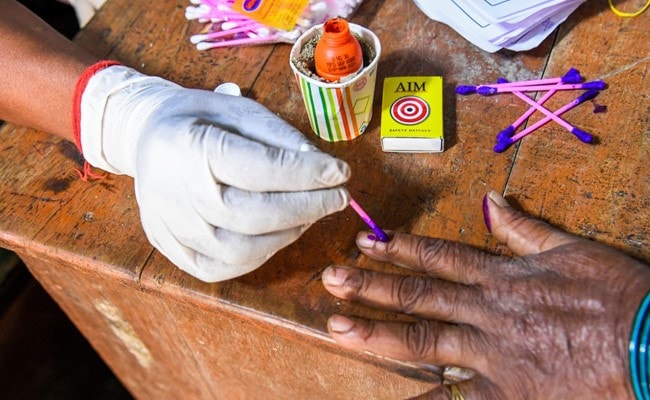April marks the first anniversary of Sudan’s war, which was sparked by a power struggle between two rival generals. Aid groups say the war has had catastrophic consequences for nearly 49 million people, more than half of whom require life-saving humanitarian assistance.
According to statistics, since the conflict broke out on April 15, 2023, tens of thousands of people have been killed and injured, millions of people have been forced to leave their homes, and 18 million people have suffered from severe hunger, of which 5 million are on the verge of famine. World Food Programme.
“Yet this catastrophic humanitarian situation in Sudan today receives almost no attention from the international community that it deserves,” said Dr. Richard Brennan, Regional Emergencies Director of the WHO Regional Office for the Eastern Mediterranean.
Brennan, who is based in Cairo, made his first trip to the emergency state early last week since taking office more than a month ago. He noted that he has visited Sudan many times over the past 25 years and has seen the country go through many crises – such as flooding, displacement, conflict and political unrest.
Still, Brennan said he was shocked by “the devastation that decades of fragility and nearly a year of brutal war have wreaked on this country.”
“In fact, I just read the 2014 mission report, which describes the desperate situation of more than 6.1 million people in need of humanitarian assistance.
“It is extraordinary that more than 24.8 million people need help today, which is four times what we observed 10 years ago,” he said, adding that the health needs were huge.
“We estimate that nearly 14,000 people are dead and 28,000 injured; outbreaks of cholera, measles, dengue fever and malaria continue; some 3.4 million children are severely malnourished; and 70 per cent of health facilities in conflict-affected areas are non-functional or only partially operational,” he said.
Early last week, UNICEF’s head of field operations and emergencies in Sudan, Jill Lawler, led a team of 12 UNICEF staff to Omdurman in the Greater Khartoum region. . The Omdurman area has been under almost constant artillery fire since the war broke out.
She described the intolerable conditions millions of children are forced to live in and spoke to reporters in Geneva on Friday about the difficulties of providing medical care to children in need.
She said: “Al Nau Hospital is one of the only hospitals in Khartoum with a fully functioning, very crowded trauma ward and we met two young people who had recently had their legs amputated – two young people whose lives have been changed forever – We learned from the hospital director that about 300 people had their limbs amputated in the hospital in the past month alone.”
She said the Arnau hospital and other hospitals she and her team visited were so overcrowded that two or three patients had to share the same bed. Medicines and equipment are in short supply, health care workers are overworked and exhausted, and most “haven’t had their regular wages for months,” she said.
“During our visit, we learned that women and girls who had been raped in the first months of the war were now giving birth – some of whom had been left in the care of hospital staff, who had built a nursery near the maternity ward, “she says.
UNICEF estimates that nearly 3.7 million children in Sudan will be severely malnourished this year, with 730,000 of them requiring life-saving treatment. “The scale and magnitude of the need for children across the country is simply staggering,” Lawler said, noting that Sudan has the largest displacement crisis in the world, adding, “Some of the most vulnerable children live in the hardest to reach places. “
The World Health Organization reports that the escalating fighting has left millions of people across the country without access to much-needed humanitarian aid.
Dr Hanan Barchi, WHO Regional Director for the Eastern Mediterranean, said: “We are particularly concerned about the situation in the Darfur states, where direct humanitarian assistance has been blocked for months and people in these areas have only limited access. assistance.” , in a statement on Friday.
Balkisi, who traveled to Sudan on a mission with colleague Richard Brennan early last week, said: “Most medical facilities have been looted, damaged or destroyed. In West Darfur, the local health system has largely Already paralyzed.”
“We continue to show that when we are given adequate opportunities and resources, we can achieve good health outcomes.
“In meetings with the Deputy Prime Minister and the Minister of Health, I received assurances that every effort will be made to facilitate the expansion of the health response across Sudan,” she said.
UNICEF calls on all warring parties to ensure rapid, sustained and unimpeded humanitarian access across conflict lines within Sudan and the borders of Sudan’s neighboring countries.
“Chad provides a vital lifeline to communities in Darfur and access across its borders and through South Sudan remains absolutely vital,” Lawler said, adding that providing a lifeline to millions of impoverished people required the international community generous support.
“We need a massive mobilization of resources by the end of March so humanitarian partners have timely access to supplies and capabilities on the ground to limit the humanitarian catastrophe we are about to see,” she said.
Follow us on Google news ,Twitter , and Join Whatsapp Group of thelocalreport.in

















